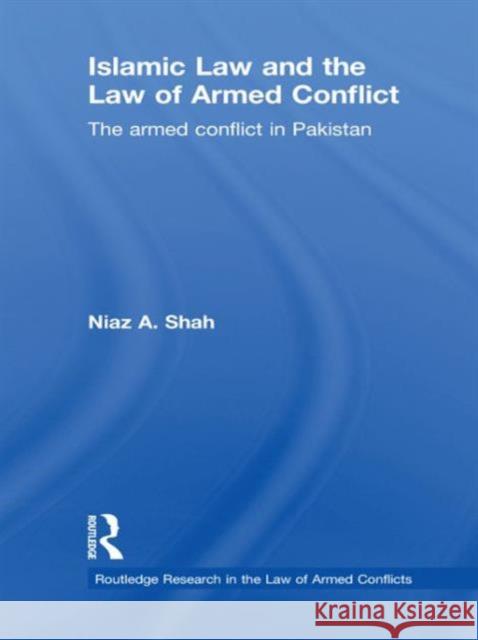Islamic Law and the Law of Armed Conflict: The Conflict in Pakistan » książka
Islamic Law and the Law of Armed Conflict: The Conflict in Pakistan
ISBN-13: 9780415563963 / Angielski / Twarda / 2011 / 176 str.
Islamic Law and the Law of Armed Conflict: The Conflict in Pakistan
ISBN-13: 9780415563963 / Angielski / Twarda / 2011 / 176 str.
(netto: 743,28 VAT: 5%)
Najniższa cena z 30 dni: 730,42
ok. 22 dni roboczych.
Darmowa dostawa!
Islamic Law and the Law of Armed Conflict: The Conflict in Pakistan demonstrates how international law can be applied in Muslim states in a way that is compatible with Islamic law. Within this broader framework of compatible application, Niaz A. Shah argues that the Islamic law of qital (i.e. armed conflict) and the law of armed conflict are compatible with each other and that the former can complement the latter at national and regional levels. Shah identifies grey areas in the Islamic law of qital and argues for their expansion and clarification. Shah also calls for new rules to be developed to cover what he calls the blind spots in the Islamic law of qital. He shows how Islamic law and the law of armed conflict could contribute to each other in certain areas, such as, the law of occupation; air and naval warfare; and the use of modern weaponry. Such a contribution is neither prohibited by Islamic law nor by international law. Shah applies the Islamic law of qital and the law of armed conflict to a live armed conflict in Pakistan and argues that all parties, the Taliban, the security forces of Pakistan and the American CIA, have violated one or more of the applicable laws. He maintains that whilst militancy is a genuine problem, fighting militants does not allow or condone violation of the law. Islamic Law and the Law of Armed Conflict will be of interest to students and scholars of international law, Islamic law, international relations, security studies and south-east Asian studies.
This book compares the Islamic law of armed conflict and the international humanitarian law, before going on to practically apply these findings to the current conflicts in Pakistan and Afghanistan. The book argues that although the origins and histories of Islamic and international law of armed conflicts are very different both regimes are to a great extent compatible.
The book will explore the details of the Islamic law of armed conflict examining its origins in the Koran, the sunnah, the hadith and views of classical jurists. In doing so Niaz Shah concludes that while the Islamic law of armed conflict certainly does not cover every aspect of current armed conflicts but the primary sources of Islamic law do not put any restrictions on carving out rules to cover modern developments in todayâs armed conflicts. The book will address the present situations in Pakistan and Afghanistan , examining the conduct of hostilities by all parties in the region including the Taliban, Al-Qaeda, the Pakistani and Afghan security forces and the US-led coalition forces and identifying violations of the laws of armed conflicts.
This book will be of interest to students and scholars of international law, Islamic law, international relations, security studies and south east Asian studies.











